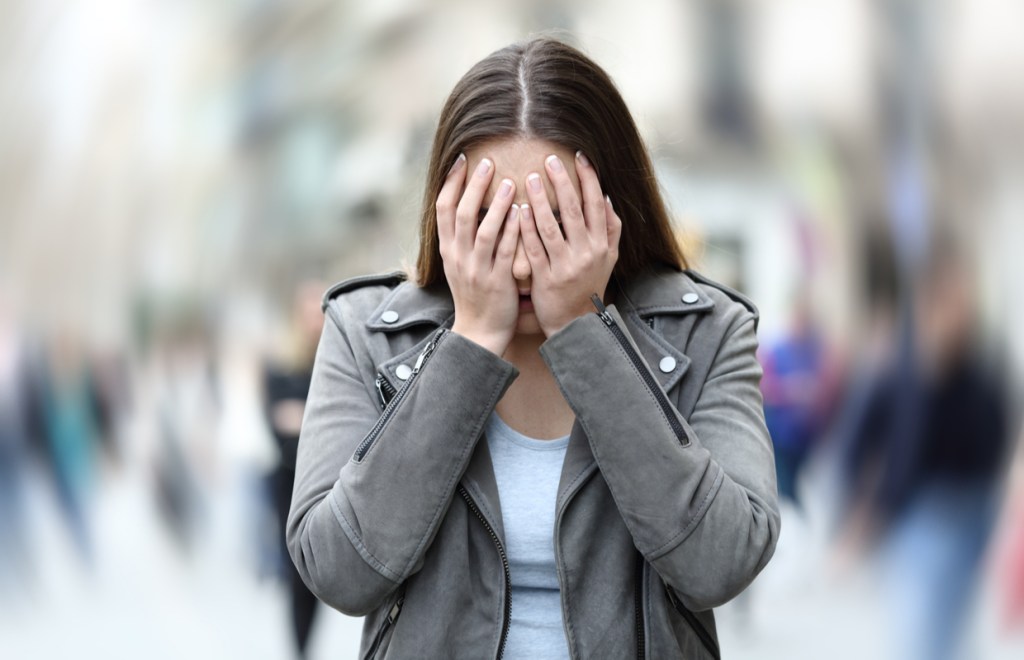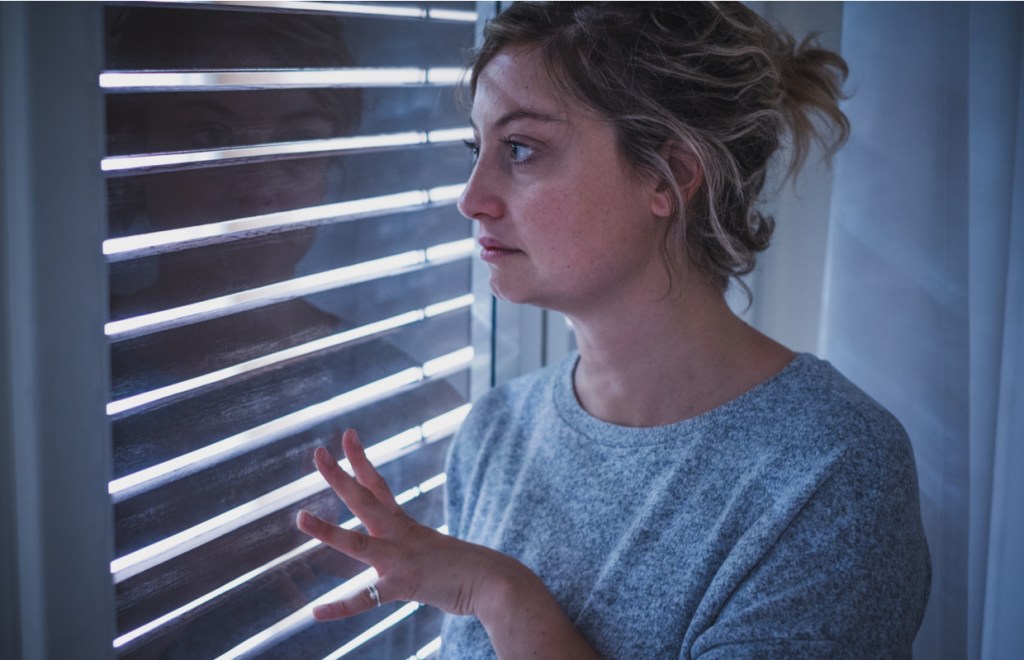What is agoraphobia: understand the causes & how to help
Discover what agoraphobia is and how to help yourself or someone who is struggling.

Agoraphobia is a common issue for many people – especially since lockdown – yet it’s rarely discussed. Dr Radha Modgil – a GP– and experts from the Mental Health Foundation take a closer look at what agoraphobia is, including the signs, causes and best treatment options available…
After months spent cocooned in our homes, it’s no surprise that many of us are feeling anxious as we re-enter a crowded, busy world. For people who experience agoraphobia, however, feelings like these define daily life, and go much further than anxiety.
What is agoraphobia?
‘Most people think of agoraphobia as simply a fear of going outside, but it can be much more complex than that,’ says Dr Modgil.
‘It can also manifest as a fear of being in situations where escape might be hard, or where help wouldn’t be available if things went wrong. Someone with agoraphobia may be concerned about a number of things, including visiting a busy place, travelling on public transport, or just stepping outside their own home.’
‘Agoraphobia is thought to be more common in women, and it tends to develop between the ages of 18 and 35,’ adds Dr Modgil.

What causes agoraphobia?
‘Agoraphobia often stems from a panic disorder, and it’s estimated that two in every 100 people suffer from such conditions,’ Dr Modgil explains. ‘This doesn’t automatically mean everyone with a panic disorder will go on to develop agoraphobia, however.‘
‘A common trigger for agoraphobia can be, for example, if a person has a panic attack in a specific environment. They begin to worry so much about having another one, that they go on to avoid it at all costs, thus limiting where they can go and what they can do.’
Why do we develop panic disorders?
We don’t fully understand the exact cause of panic disorder. However, many believe it’s a combination of biological and psychological factors, including…
- A neurotransmitter imbalance, which activates your fight or flight response.
- A traumatic childhood experience.
- A stressful life event.
- A previous history of mental illness.
‘Of course, agoraphobia is also possible without a panic disorder,’ says Dr Modgil. ‘In these instances it is often triggered by different fears, such as humiliating yourself at a public event or being involved in an accident.’
Signs of agoraphobia
‘The signs and symptoms of agoraphobia can vary significantly from person to person,’ explains Dr Modgil. ‘For example, someone with severe agoraphobia may be unable to leave their house, whereas someone who has mild agoraphobia may be able to live day to day without problems, but may become anxious in large venues or crowds, and therefore seek to avoid them.’

How to help yourself and others with agoraphobia
‘There are a number of ways we can help ourselves or people we love who may be battling with agoraphobia,’ says Dr Modgil. ‘Due to its strong link, techniques to help in panic attack situations are a good place to start…’
- Stay put: If you’re experiencing an episode of panic, stay where you are and resist the urge to leave.
- Focus: Try to focus on something physical, such as the time passing on your watch, or items in front of you, to remind yourself of what is real.
- Breathe slowly: Feelings of panic and anxiety can get worse if you breathe too quickly; try to focus on slow, deep breathing
- Don’t fight it: Try to accept what is happening and let it run its course. Allow yourself to realise everything is going to be okay.
Adopting a healthy lifestyle will help keep you emotionally balanced. Regular exercise can relieve stress and improve your mood, while a healthy diet can help keep your systems on an even keel. Reducing or avoiding alcohol and caffeine is also a good idea.
What is the best treatment for agoraphobia?
If you are struggling to deal with your agoraphobia alone, speak to your GP and ask for help. They are likely to recommend a step-by-step approach, which might be as follows…
- Finding out more about your condition, the lifestyle changes you can make, and self-help techniques to relieve symptoms.
- Enrolling on a guided self-help programme.
- Depending on the severity of symptoms, registering for more intensive treatments, such as cognitive behavioural therapy (CBT), or considering medication.
Be sure to mention to your GP if you experience other physical symptoms, such as chest pain, shortness of breath, dizziness or fainting episodes.
Find more information and support at nhs.uk/mental-health.
More inspiration: How to beat anxiety
Words: Larissa Chapman






